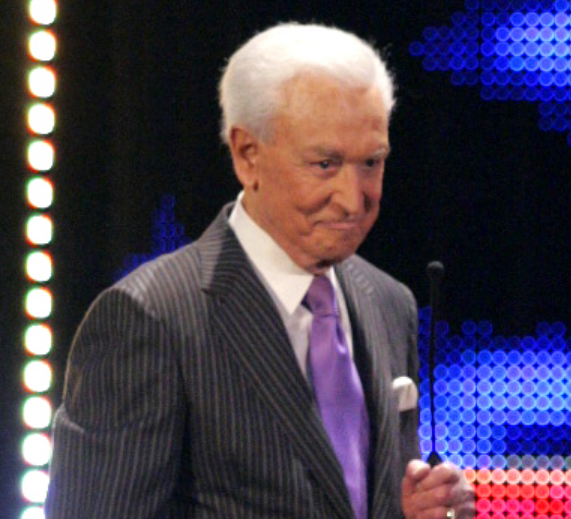Bob Barker, best known for being the longtime host of “The Price is Right,” walked on at his Hollywood Woods home on Saturday of natural causes. Barker was less known for his Native American roots. Barker was 99.

“It is with profound sadness that we announce that the World’s Greatest MC who ever lived, Bob Barker has left us,” publicist Roger Neal said in a statement Saturday.
He was born Robert Willam Barker in 1923 in Darrington, Washington. His father, Byron John Barker, was one-quarter Sioux, which made him one-eighth. His father was an electrical line foreman, who passed away from injuries sustained in a fall from an electrical tower in 1929.
After his father’s death, Barker’s mother moved the family to the Rosebud Indian Reservation where she taught school. The family lived there until Barker’s early teens.
“I always bragged about being part Indian because they are a people to be proud of. And the Sioux were the greatest warriors of them all,” Barker told the Associated Press in 1962 in an interview.
Barker’s show business career on the radio for a station in Florida. In 1956, he began to host Truth or Consequences until the program ended in 1974.
Barker had already begun hosting “The Price is Right" in 1972 and remained the host until 2007. He announced his retirement on October 31, 2006 and his final episode aired on June 15, 2007.
“The Price is Right” is television’s longest running game show.
More Stories Like This
Zuni Youth Enrichment Project Takes Top Emerging Artist Apprentices to Phoenix for Artistic Exploration and Cultural ImmersionFrom Dishwasher to Award-Winning Chef: Laguna Pueblo's Josh Aragon Serves Up Albuquerque's Best Green Chile Stew
Rob Reiner's Final Work as Producer Appears to Address MMIP Crisis
Vision Maker Media Honors MacDonald Siblings With 2025 Frank Blythe Award
First Tribally Owned Gallery in Tulsa Debuts ‘Mvskokvlke: Road of Strength’
Help us defend tribal sovereignty.
At Native News Online, our mission is rooted in telling the stories that strengthen sovereignty and uplift Indigenous voices — not just at year’s end, but every single day.
Because of your generosity last year, we were able to keep our reporters on the ground in tribal communities, at national gatherings and in the halls of Congress — covering the issues that matter most to Indian Country: sovereignty, culture, education, health and economic opportunity.
That support sustained us through a tough year in 2025. Now, as we look to the year ahead, we need your help right now to ensure warrior journalism remains strong — reporting that defends tribal sovereignty, amplifies Native truth, and holds power accountable.
 The stakes couldn't be higher. Your support keeps Native voices heard, Native stories told and Native sovereignty defended.
The stakes couldn't be higher. Your support keeps Native voices heard, Native stories told and Native sovereignty defended.
Stand with Warrior Journalism today.
Levi Rickert (Potawatomi), Editor & Publisher

